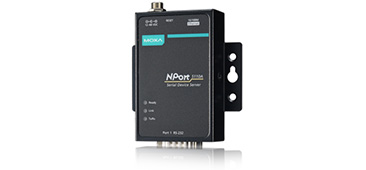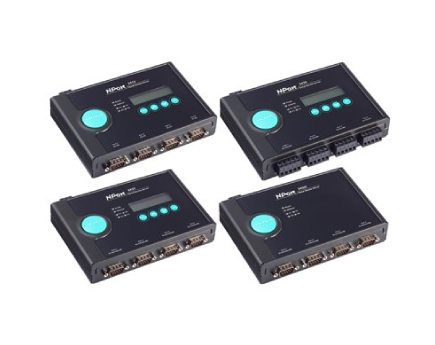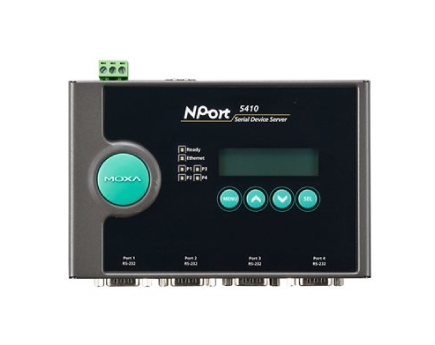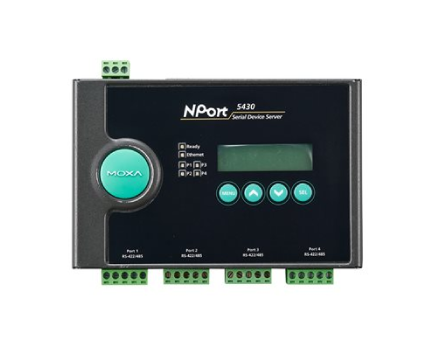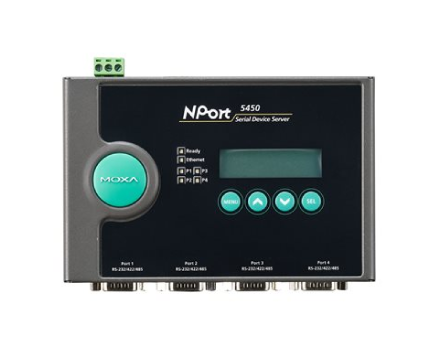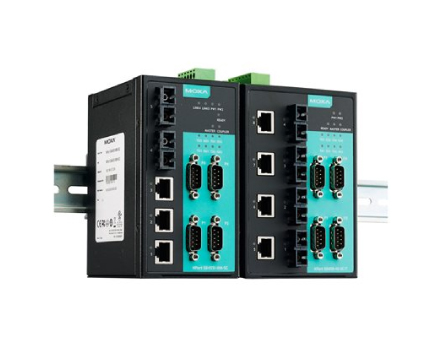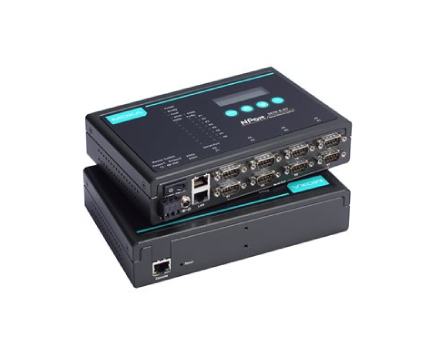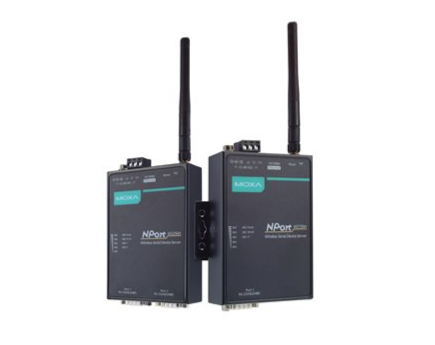Description
Introduction
NPort® 5400 device servers provide many useful features for serial-to-Ethernet applications, including an independent operation mode for each serial port, user-friendly LCD panel for easy installation, dual DC power inputs, and adjustable termination and pull high/low resistors.
Network Readiness for up to 4 Serial Devices
NPort® 5400 device servers can conveniently and transparently connect up to four serial devices to an Ethernet network, allowing you to network your existing serial devices with only basic configuration. Data transmission between the serial and Ethernet interfaces is bidirectional. By using NPort® device servers, you not only protect your current hardware investment, but also allow for future network expansion. You can both centralize the management of your serial devices and distribute management hosts over the network.
Independent Operation Mode for Each Serial Port
NPort® 5400 device servers can be used to connect different devices for remote data polling or event handling over a TCP/IP network. Each serial port on the NPort® 5400 operates independently to provide maximum versatility. For example, port 1 can operate in Driver mode, port 2 in TCP Server mode, and ports 3 and 4 in TCP Client mode.
User-friendly LCD Panel for Easy Installation
An LCD panel is built into the NPort® 5400’s top panel, with four buttons for data input, configuration, and operation mode selection. The LCD panel displays the server name, serial number, and IP address, and it can be used to enter or modify parameters such as IP address, netmask, and gateway. (The LCD panel is not available on wide-temperature models.)

Dual DC Power Inputs
NPort® 5400 device servers support dual power sources by providing both a DC terminal block input and a DC power jack input. Providing two types of power inputs gives users greater flexibility for use with different applications.

Adjustable Termination and Pull High/Low Resistors
The NPort 5400 Series provides adjustable termination and pull high/low resistors for RS-485 applications. In some critical environments, termination resistors may be needed to prevent the reflection of serial signals, and the pull high/low resistors may need adjusting to maintain the integrity of the electrical signal. Since no set of resistor values is universally compatible with all environments, the NPort® 5400 has four sets of DIP switches on the bottom panel to set the termination and pull high/low resistor values.




